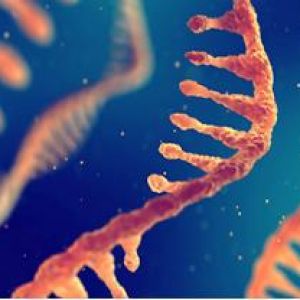The Role of Complement System in COVID-19 DevelopmentPosted by Candy Swift on December 30th, 2020 The disease COVID-19 caused by SARS-CoV-2 has caused a global pandemic and health crisis. Based on a large amount of research data, the fatality rate associated with COVID-19 can be attributed to an excessive immune response, and thus the role of complement activation and its impact on the severity of the disease has received increasing attention.
(1) SARS-CoV-2 activates multiple complement pathways; (2) The clinical symptoms of severe COVID-19 patients are usually similar to that of complement system-related disease; (3) The comprehensive effects of complement activation, neutrophil dysregulation, endothelial injury and hypercoagulable state are intertwined and jointly drive the severe symptoms of COVID-19; (4) Some COVID-19 patients show genetic susceptibility related to abnormal complement regulation. Acute respiratory distress syndrome (ARDS) occurs in most patients who become severely ill after being infected with SARS-CoV-2. The worsening of lung function is due to an inappropriate immune response, not an increase in viral load. One theory is to activate lung tissue innate immune cells through pattern recognition receptors, driving the release of pro-inflammatory cytokines and extravasation of blood neutrophils and monocytes into the bronchus. These cells may cause collateral tissue damage, and the damage of vascular endothelial cells may explain why patients have thrombotic microangiopathy. The complement system is an important part of the virus innate immune response and the initiator of pro-inflammatory response. Previous studies on SARS-CoV found that the activation of complement C3 exacerbated the SARS-CoV-related ARDS. This indicates that the inhibition of C3 may alleviate the inflammatory pulmonary complications of SARS-CoV-2 infection. In SARS-CoV-infected C3-deficient mice, a significant decrease in lung infiltrating neutrophils and a decrease in IL-6 levels in the lung and plasma were observed, indicating the potential of C3 inhibitors in combination with anti-IL-6 regimens. C3 inhibition can simultaneously block the production of C3a and C5a, and the activation of C3 molecules in the lung, as well as the release of IL-6 from alveolar macrophages or other cells expressing C3a receptors (C3aRs) and/or C5a receptors (C5aRs), is proved to be able to improve lung damage.
A new study published in the journal Blood by Johns Hopkins University details another way the virus disrupts the immune system, which may exacerbate the immune response in severe COVID-19 cases. Before linking to the ACE2 receptor found on lung cells, the spike glycoprotein component of the SARS-CoV-2 is linked to heparan sulfate. It is this combination that allows the virus to link with the ACE2 receptor, enter the cell, and begin to replicate. By "stealing" the available heparan sulfate, the virus prevents a protein called factor H from using it to bind to cells. Factor H is the name of a glycoprotein that circulates in human plasma. Its purpose is to ensure that the immune system only attacks pathogens, not healthy tissues. Without the protection of factor H, the immune system may eventually damage healthy cells next to the virus-infected cells. This continued destruction of healthy tissues can lead to organ failure and death in severe COVID-19 cases. Factor H is a component of the complement system. The complement system is composed of a variety of proteins, including factor H and factor D. Experiments at Johns Hopkins University have shown that by blocking factor D, the upstream pathway of factor H, the chain reaction caused by the virus can be prevented. Drugs that can prevent the immune response from worsening after exposure to SARS-CoV-2 may save the lives of many people, especially high-risk groups, who may even be completely prevented from infection. Like it? Share it!More by this author |


